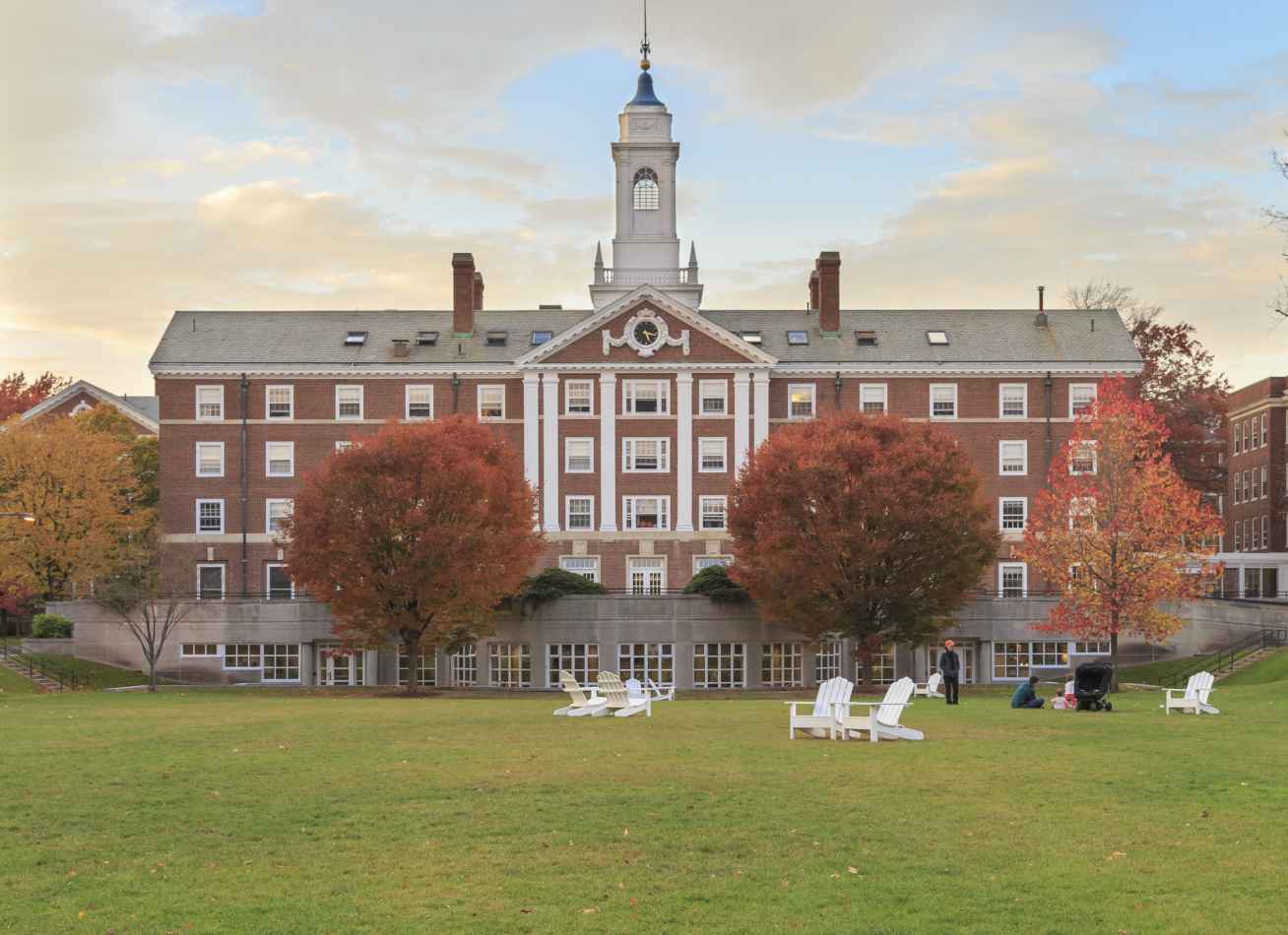Studying in the USA offers a unique experience for international students. It combines education and adventure in a diverse environment.
The USA attracts students from around the globe. Its universities are known for quality education and vibrant campus life. You will find a mix of cultures, making it a melting pot of ideas and perspectives. This experience extends beyond the classroom.
Students can engage in various activities, from sports to arts. The USA's diverse landscape also offers travel opportunities, from bustling cities to serene nature spots. This blog will delve into what makes the USA student experience unique and unforgettable. Dive in to discover why so many choose the USA for their studies.
Choosing The Right University
Check different universities. Look at their programs. Compare the courses they offer. Check the tuition fees. Look at the campus facilities. Read reviews from students. Ask friends for advice. Consider the location. Is it in a big city or a small town? Look at the weather. Check the safety of the area. Compare the cost of living. Make a list of your top choices.
Visiting the campus is important. You can see the facilities. Talk to students. Ask them about their experience. Check the classrooms. Visit the library. Look at the dorms. See the cafeteria. Walk around the campus. Feel the atmosphere. Is it friendly? Is it busy? Check the transport options. Is it easy to travel around? Make notes during your visit. Compare with other universities later.
Application Process
To apply to a university in the USA, gather all necessary documents. This includes your passport, academic transcripts, and letters of recommendation. You will also need your English proficiency test scores. Common tests are the TOEFL or IELTS. Some schools may ask for other documents. Always check the specific requirements of each school.
A personal statement is a key part of your application. It tells the school about you. Share your goals, achievements, and why you want to study in the USA. Be honest and clear. Use simple language. Keep it short and to the point. Make sure to proofread your statement. A well-written statement can make a big difference.
Visa And Immigration
Students usually need an F-1 visa to study in the USA. This visa is for academic studies. M-1 visa is for vocational courses. There is also a J-1 visa for exchange programs. Each visa type has its own rules and limits. It is important to choose the right visa.
First, apply to a SEVP-approved school. Then, get accepted by the school. Next, pay the SEVIS fee. After that, complete the DS-160 form. Schedule an interview at a U.S. embassy or consulate. Bring all required documents. Be honest in your interview.

Credit: www.jeduka.com
Financial Planning
Tuition fees can be a big expense for students in the USA. Costs vary by university and program. Public schools often have lower fees than private ones. Some programs, like medicine or law, can be very costly. It's important to budget and plan ahead.
Scholarships and grants help reduce the cost of studying. Scholarships are often given for good grades or special talents. Grants are usually based on financial need. Both are free money, meaning you don't have to pay them back. Many organizations and schools offer them. Look online and apply early.
Accommodation Options
On-campus housing is a popular choice for students. It provides convenience and community. Most colleges offer dormitories or residence halls. These come with basic furniture, internet, and sometimes meal plans. Living on-campus makes it easier to meet new friends. It also means being close to classes and campus events. Safety is another benefit as campuses often have security measures in place. On-campus housing is usually more cost-effective than off-campus options. It is a great way to immerse in campus life fully.
Off-campus housing offers more freedom and privacy. Students can choose to live in apartments, houses, or shared rooms. This option is often preferred by older students. It allows for independent living and the chance to explore the city. Rent can vary widely depending on location. Utilities, internet, and food are usually separate costs. Finding off-campus housing may require more planning. Students should consider factors like transportation and safety. Off-campus living can be more expensive but offers a different experience.
Academic Life
Choosing courses in the USA can be exciting. Students have many options. They can pick classes based on interests. Some courses are required. Others are electives. This mix helps students explore new areas. It also ensures they meet graduation requirements.
Classrooms in the USA are dynamic. Teachers encourage questions. Students often discuss topics. This makes learning interactive. Participation is valued. Respectful debate is common. Collaboration is a key part of the experience.
Social Life
Making friends in the USA can be fun. Many students are friendly. They want to meet new people. Be open and smile. Join conversations. Ask simple questions about their day. Share your interests. Try to find common hobbies. Attend social events. Participate in group activities. It helps to be active. You can make friends in class too. Sit next to someone new. Introduce yourself. Small steps make a big difference.
Joining clubs and organizations is great. Many schools have lots of options. You can join a sports team, a music group, or a cultural club. Find something you enjoy. Clubs help you meet people with similar interests. They offer activities and events. These can be fun and educational. Being part of a club also looks good on your resume. It shows you are active and engaged. Don't hesitate to explore different clubs. You might find a new passion.

Credit: educationusa.state.gov
Adjusting To Culture
Moving to the USA brings many new experiences. People greet each other in different ways. Some customs may seem strange at first. Americans value personal space. They also like being on time. In some cultures, this is less important. Food can be very different too. You might miss your home meals. But trying new foods can be fun. Many students learn to love American dishes.
Feeling lost in a new place is normal. This is called culture shock. It can make you feel sad or confused. Talking to friends helps. Sharing your feelings is good. Joining clubs at school can help too. You will meet new people. They might feel the same way. Keeping a piece of home with you helps. Maybe a photo or a favorite snack. Over time, things get easier. You will start to feel at home.
Support Services
Universities in the USA offer academic support to help students. Tutoring centers are available for help. Tutors assist with homework and study skills. Writing centers help with essays and reports. Online resources are also provided. These include videos and practice quizzes. Professors have office hours for questions. Students can attend workshops for extra help. Study groups are often formed by classmates. Libraries offer quiet spaces for studying. Special programs are available for international students.
Mental health resources are important for student well-being. Counseling services are offered on campus. Students can talk to a counselor in private. Support groups are available for various issues. Workshops teach stress management and relaxation. Online resources include mental health apps and websites. Crisis hotlines provide help in emergencies. Universities often have a wellness center. Wellness centers promote healthy living. They offer programs and activities. These services are usually free for students.

Credit: www.youtube.com
Career Opportunities
Internships offer great learning experiences. They help students gain real-world skills. Many companies look for interns. Internships can lead to full-time jobs. Students should apply early. Networking is also key. Meet people at career fairs. Speak to professors for leads. Always keep a resume ready. Tailor it for each job. This will impress recruiters.
Use online job portals. Sites like LinkedIn and Indeed are popular. Set up alerts for new postings. Network with industry professionals. Attend job fairs and workshops. Practice your interview skills. Dress well for interviews. Research each company before the interview. This shows you are serious. Follow up with a thank you email. Stay positive and patient.
Frequently Asked Questions
What Is Student Life Like In The USA?
Student life in the USA is diverse and vibrant. Universities offer numerous extracurricular activities, sports, and clubs. Students experience cultural diversity and high-quality education.
How Do Us Universities Support International Students?
US universities provide extensive support to international students. They offer orientation programs, academic advising, and counseling services. They help with visa and immigration processes.
What Housing Options Are Available For Students?
Students can choose from on-campus dormitories, off-campus apartments, and homestays. On-campus housing offers convenience and community. Off-campus housing provides more independence.
Are Scholarships Available For International Students?
Yes, many US universities offer scholarships for international students. Scholarships are based on academic merit, financial need, or specific talents. Check each university's website for details.
Conclusion
Experiencing student life in the USA is truly unique. The diverse culture, academic opportunities, and new friendships create lasting memories. Challenges may arise, but they help students grow. Studying in the USA can shape a bright future. Embrace every moment and seek new experiences.
The journey is as important as the destination. Enjoy your time, learn, and make the most of every opportunity. The USA offers an enriching student experience.
.png)






0 Comments